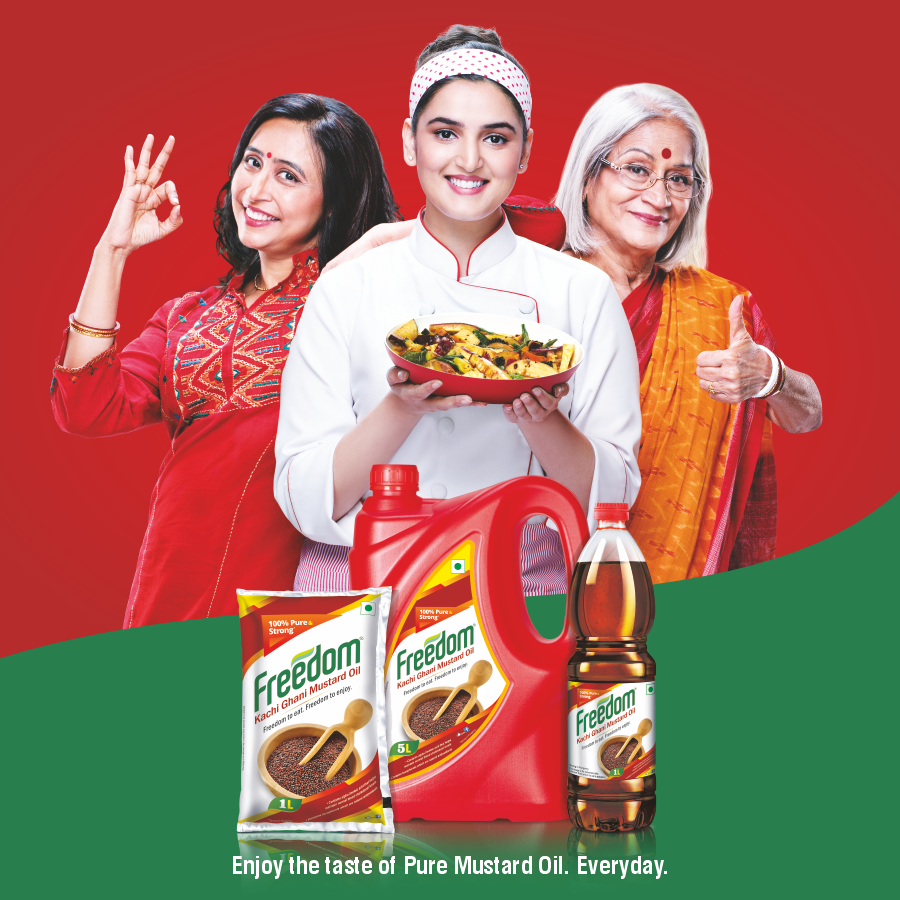Mustard oil, a staple in Indian cuisine and traditional practices, holds a unique position in both cultural and culinary landscape. This versatile oil is deeply ingrained in various aspects of Indian culture from religious rituals to medicinal applications, while offering a distinctive flavor to traditional culinary creations. Its multifaceted role reflects a rich tapestry of traditions, beliefs, and health considerations.
Mustard oil is made from the seeds of the mustard plant. With characteristic bright yellow flowers sprawled over acres, this flavorsome herb is cultivated in northern India in Rajasthan, Punjab, Bihar, Chhattisgarh, Jharkhand, Orissa, Eastern Uttar Pradesh, Sikkim, and West Bengal. A part of the Brassicaceae family which includes other vegetables such as cabbage, cauliflower, radish, and rapeseed, mustard seeds are used both as a spice and oil source. Mustard oil has its distinctive pungent flavor which addsa twist to some of the culinary delights.
Culinary traditions across North and East India showcase mustard oil's integral role in regional dishes. From the iconic sarson da saag in Punjab to the flavorful fish curries of Bengal, its distinct and pungent flavor is indispensable. When used in vegetarian dishes, the oil imparts a unique taste, but its potency necessitates cautious moderation. Heating it to its smoking point removes its pungency, ensuring a balanced flavor profile without overpowering the dish. In non-vegetarian cuisine, especially in Odiya and Bengali recipes, mustard oil elevates the taste of meats and fish, often used in marinades to enhance flavors. It is used in some variations of butter chicken to create the Wow Factor and a unique flavorful twist.
In traditional medicine, particularly within Ayurveda, mustard oil is revered for its therapeutic properties. Rich in omega-3 and omega-6 fatty acids, it is believed to promote cardiovascular health by balancing cholesterol levels. Mustard oil's potential health benefits extend beyond its culinary and cultural uses. Its fatty acid composition contributes to heart health by regulating cholesterol levels. Additionally, its anti-inflammatory properties make it a preferred choice for massages, offering relief from joint pains and aiding in skincare and hair health. However, individual responses may vary.
In the realm of Indian culture, mustard oil transcends the boundaries of the kitchen. It plays a pivotal role in religious ceremonies within Hinduism, often used as a symbolic offering during worship. Additionally, during festivals like Diwali, mustard oil lamps illuminate homes, symbolizing auspiciousness and purity.
According to Mr. P Chandrashekhara Reddy, Sr. Vice President, Gemini Edibles and Fats India Ltd, “Mustard oil embodies a rich tapestry of cultural significance, culinary versatility, and potential health benefits deeply woven into the fabric of Indian traditions. Its flavorful presence in cuisine and multifaceted roles in rituals and medicinal practices reflect its enduring importance in Indian culture. Considering the strong preference for Mustard Oil in some pockets we offer Freedom Kacchi Ghani Mustard Oil to our patrons, encouraging both appreciation for the heritage, culinary preference and mindful consumption for its potential health benefits.”

 The mustard oil process begins with the thorough cleaning of the seeds to remove any impurities. Once cleaned, the seeds are crushed into a coarse paste. The paste is then pressed to extract the oil. The extracted oil is collected and filtered to remove any solid particles.
The mustard oil process begins with the thorough cleaning of the seeds to remove any impurities. Once cleaned, the seeds are crushed into a coarse paste. The paste is then pressed to extract the oil. The extracted oil is collected and filtered to remove any solid particles.










.jpeg)











.jpg)








